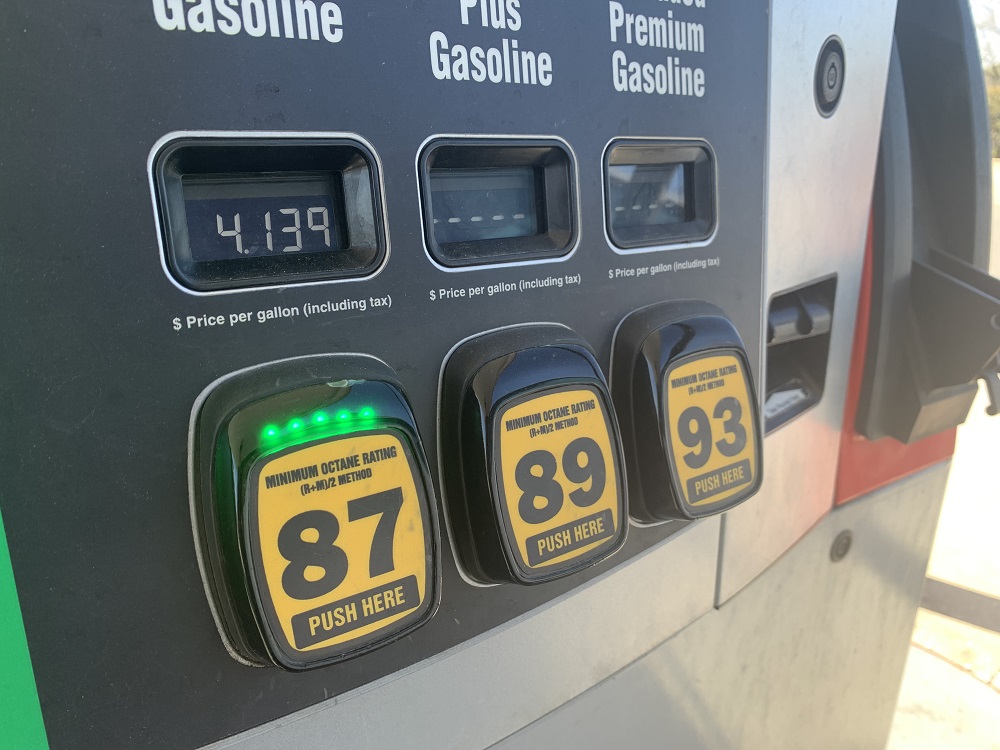Gas Tax “Holiday” Bill Advances; Leaders Hope Motorists Will See Lower Fuel Prices

Maryland lawmakers gave tentative approval to a 30-day “holiday” from the state’s gas tax, setting the stage for a final vote in each chamber early Thursday. The measure is on track to reach Gov. Lawrence J. Hogan Jr.’s desk by Thursday afternoon.
The measures, Senate Bill 1010 and House Bill 1486, would temporarily eliminate the requirement that service station owners remit Maryland’s 36-cent-per-gallon gas levy to the Comptroller’s office. The pause would become effective with Hogan’s signature.
State leaders hope that station owners pass along the savings to consumers, though they concede that they lack the power to mandate that.
AAA reported on Wednesday that the average price of gasoline is $4.23 per gallon, down two cents from the day before. A month ago the price stood at $3.53. A year ago consumers could fill their tank for $2.84 per gallon.
The measures were introduced after Russia invaded Ukraine, a move that caused the global price of crude oil to spike, sending pump prices skyward. Lawmakers in each chamber advanced the bills on a voice vote, without dissent.
The tax holiday gained momentum when the Board of Revenue Estimates projected that Maryland’s budget surplus is expected to be about $7.5 billion over the next two years. As 2022 is an election year in Maryland, all 188 seats in the General Assembly are up this fall, and voters will decide who shall serve as governor, comptroller and attorney general starting next year.
Comptroller Peter V.R. Franchot (D), a member of the board and a candidate for governor, called for a three-month pause in the state’s gas tax. He praised state leaders for coming together “at lightning speed” in support of the 30-day plan.
Republicans in the Senate sought to amend the tax-holiday measure to eliminate the provision in Maryland law that causes the gas tax to increase automatically, by the rate of inflation, each year. They said the legislature should consider each bump in the fuel tax on an annual basis instead.
“We never should have put an automatic gas-tax increase that went in perpetuity,” said Sen. Justin Ready (R-Carroll). “No increase in what we take from taxpayers should happen automatically.”
Democrats opposed the amendment. Even before Russia’s invasion, Senate President Bill Ferguson (D-Baltimore City) said, Maryland was suffering a drop in transportation revenue because cars are more fuel efficient and because more motorists are purchasing alternative-fuel vehicles.
He and Budget and Tax Committee Chairman Guy Guzzone (D-Howard) pledged that the legislature will take a deep dive into the state’s reliance on the gas tax, which is currently the leading source of revenue for the transportation trust fund.
“We don’t know what that answer will be for our roads, for our bridges, for our highways, for our transit systems, for our port, for our airport,” Ferguson said. “This is what funds the infrastructure of our economy.”
The amendment failed on a party-line vote after a brief discussion.
Hogan told reporters on Tuesday that Maryland will be working to thwart price-gouging by gas station owners.
The 30-day tax holiday will cost the state approximately $94 million, according to legislative analysts. Because of lower tax revenues, the state’s Transportation Trust Fund will reduce grants to local governments by about $8 million, so the net impact will be around $86 million.




 Creative Commons Attribution
Creative Commons Attribution